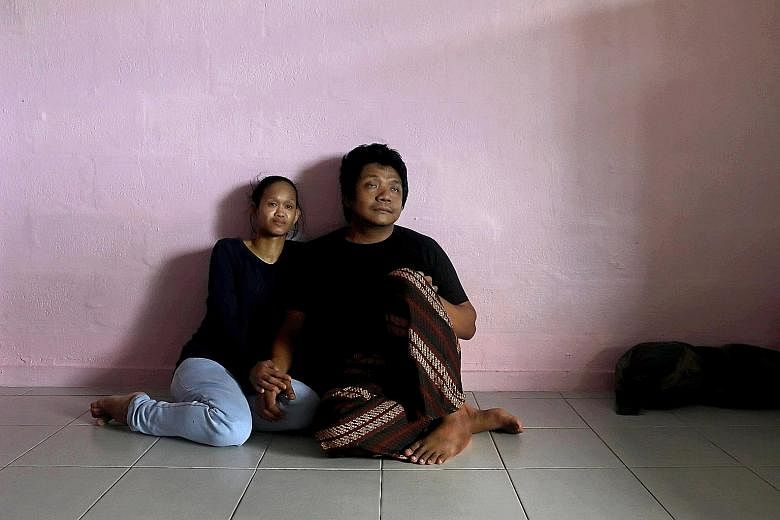A few packs of instant noodles, some cooking oil, a half-full bag of rice, and a bottle scraped nearly clean of chilli sauce - that was all on the kitchen shelves for a family of six living in a two-room rental flat.
That was a little over a week ago, on April 10. With only $200 left for his wife and four children over the next three weeks, Sam (not his real name), 37, has to stretch every dollar to make ends meet.
What little and unstable daily allowance he had from helping his mother as a school canteen vendor was gone when the Ministry of Education (MOE) closed all schools and instituted home-based learning for the circuit breaker period.
His next cash payout from the ComCare assistance scheme, typically $1,200 in cash for three months, is due on May 4, a day before the circuit breaker measures are lifted. (Family has been getting help, and will continue to do so: MSF)
The Solidarity Payment of $600, which he and his wife received, has been of help for desperately needed supplies and groceries.
He has tried calling the Social Service Offices hotline on his financial aid document, but says that from experience, it seldom gets picked up - and the increased call traffic during the pandemic is likely to make this worse.
"It will go to voicemail, then I will need to leave my number. Sometimes I wait nine days for them to get back," he said.
In addition, the closure of schools means he has to provide meals for his children that would have been subsidised under financial assistance at school. To make matters worse, his home in Ang Mo Kio Avenue 3 has no broadband Internet to be used for his children's home-based learning.
For now, volunteers have helped by providing him a donated laptop and linked him up with a limited but free data plan which he has used to set up a Wi-Fi hot spot. They have also helped him with government forms to get broadband Internet.
Although the MOE has said that students from low-income families can go to school for their learning needs during the circuit breaker, Sam wants to protect his children from getting infected while commuting to school.
"There were new cases nearby, even teachers. Why should I take that risk with my kids?"
Instead, his children - two in primary school and two in secondary school - share the one laptop. He is afraid of getting a device from MOE as the terms of the loan state that he has to pay if something happens to it, and he would not be able to afford it.
Ms Joyz Tan, assistant director at Fei Yue Family Service Centre, said immense support is needed for large families who find themselves now squeezed into small flats all day long.
"Some of our clients have nine people in the family, and seven of them are children. One can imagine how much they need to support their home-based learning and food needs," said Ms Tan.
She knows of an eldest son who does his home-based learning at the staircase area outside his home to cope with the cramped space and distractions of having siblings running around.
No strangers to hardship, Sam's family once stayed on beaches for three years before they moved into their current home in 2009, and his son has gone through multiple operations to correct birth defects.
Even so, the pandemic is likely to test their resolve.
"I went for three job interviews, but none of them got back to me. If (the circuit breaker) carries on, and I continue to have no income, I don't know what to do," he said.
• Visit these websites to donate:











